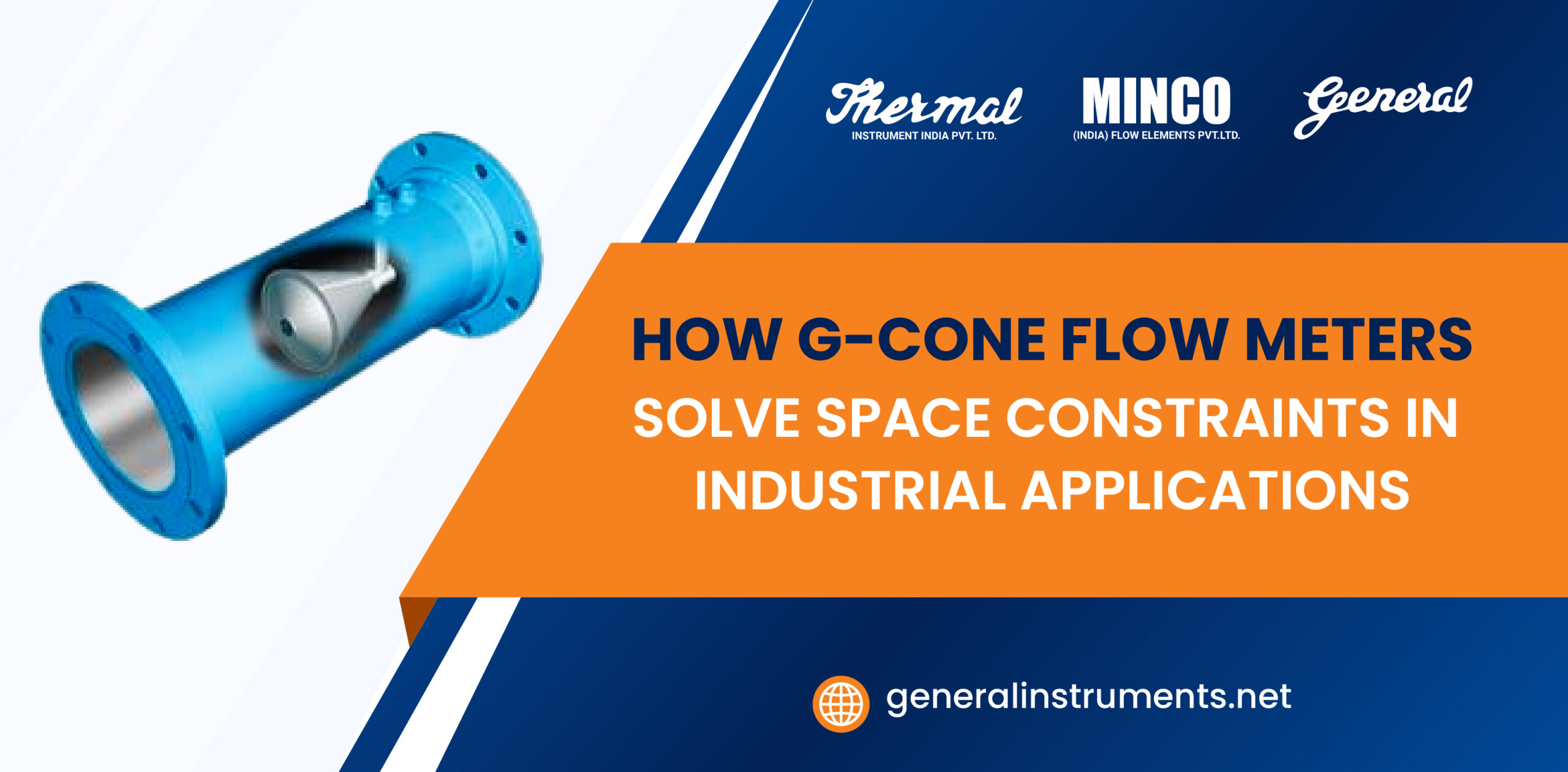
How Cone Flow Meters Solve Space Constraints in Industrial Applications
Industries today face a growing challenge—optimizing space without compromising efficiency. Whether in oil & gas, power plants, chemical processing, or water treatment, modern industrial setups require flow measurement solutions that fit into compact environments. Traditional differential pressure (DP) flow meters, like orifice plates, Venturi tubes, and flow nozzles, demand long upstream and downstream pipe runs to stabilize flow before measurement. However, this is not always feasible, especially in offshore platforms, modular processing units, or retrofitting projects with space constraints.
This is where Cone Flow Meters, developed by General Instruments Consortium, a leading Cone Flow Meters manufacturer, offer an innovative solution. These meters provide highly accurate and repeatable measurements in systems where conventional meters would be impractical due to limited straight pipe length availability.
Why Space Constraints Are a Major Issue in Industrial Flow Measurement
Most industrial flow meters need straight, unobstructed pipe runs both upstream and downstream of the meter to allow the flow to stabilize before measurement. However, in compact processing plants, offshore facilities, skid-mounted systems, and urban water treatment plants, long straight lengths are not always available. Industries are increasingly looking for solutions that require less piping, lower costs, and minimal modifications to existing infrastructure.
How Cone Flow Meters Overcome Space Constraints
-
Minimal Straight Pipe Length Requirement
One of the key advantages of Cone Flow Meters is that they require only 3D upstream and 2D downstream straight pipe lengths—a significant improvement over traditional DP meters, which require anywhere from 10D to 44D. This makes Cone the perfect choice for cramped installations where every inch of space matters.
-
Self-Conditioning Flow Profile
Unlike traditional flow elements that require external flow conditioners, the Cone itself acts as a flow straightener. The conical shape naturally smooths out turbulence, ensuring that accurate and stable readings can be taken without additional accessories. This simplifies installation, reduces pressure drop, and enhances overall efficiency.
-
Versatile Application Across Industries
The Cone Flow Meter is suitable for measuring liquids, gases, and steam across multiple industries, including:
- Oil & Gas – Accurate measurement of natural gas, crude oil, and steam in refineries and offshore rigs.
- Chemical Processing – Handling corrosive fluids with precision, even in tight spaces.
- Power Plants – Steam flow measurement in boiler applications where space is limited.
- Food & Beverage – Hygienic and high-precision flow measurement for production processes.
- Water & Wastewater – Space-efficient monitoring of flow rates in treatment plants and pumping stations.
-
Robust Design and Wide Material Compatibility
As a trusted Cone Flow Meters manufacturer, General Instruments Consortium ensures that these meters are built to withstand harsh environments. Available in materials like Stainless Steel, Duplex & Super Duplex Stainless Steel, Inconel, and Hastelloy-C, they offer high durability, corrosion resistance, and long-term reliability.
-
Cost Savings and Low Maintenance
With reduced piping requirements, no need for external flow conditioners, and minimal pressure loss, Cone Flow Meters help cut down installation and operational costs. Their rugged build minimizes maintenance needs, ensuring continuous, reliable performance with minimal downtime.
Conclusion
For industries struggling with limited space but high-performance requirements, Cone Flow Meters by General Instruments Consortium provide the ideal solution. With minimal straight length requirements, built-in flow conditioning, and superior accuracy, they enable efficient, cost-effective, and space-saving flow measurement. If you’re looking for a cutting-edge solution that enhances industrial efficiency while saving valuable space, the Cone Flow Meter is the perfect choice.
